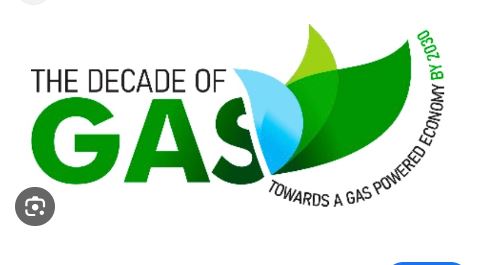Ed Ubong, the Coordinator of the Decade of Gas Initiative, has underscored the critical importance of transitioning to a gas-driven economy in Nigeria. This transition is essential not only for the economic revitalization of the country but for the welfare of its citizens. Speaking at the recent NAEC Annual Strategic International Conference 2024 in Lagos, Ubong articulated the potential benefits of a gas-focused industrialization strategy, emphasizing the importance of natural gas in fueling economic growth, creating jobs, and fostering the development of small and medium-sized enterprises. His assertions reflect a broader vision of leveraging Nigeria’s vast natural gas reserves as a means to enhance energy security and facilitate sustainable industrial development.
Nigeria is recognized as the largest holder of gas reserves in Africa, boasting an estimated 206 trillion cubic feet, and is ranked ninth globally. Ubong highlighted that these natural resources are not merely national assets but have significant value on the global stage. He advocated for utilizing the country’s gas reserves as a foundation for energy security and robust industrialization, leading to overall economic growth. The Decade of Gas Initiative, launched in 2021 by the Nigerian government, represents a strategic partnership between the government and the private sector aimed at harnessing these gas resources for both economic and energy transition purposes. This endeavor is designed to propel the nation toward a trajectory of sustained economic growth and energy sufficiency over the next decade.
Gas, according to Ubong, serves a dual purpose; it is both a fuel source and an essential industrial feedstock. This versatile resource is vital for enhancing Nigeria’s electricity generation capacity, reducing energy costs, and improving the reliability of power supply to households, businesses, and industries. He presented a compelling case for the necessity of investments in gas infrastructure, including gas pipelines and gas-fired power plants, as critical steps toward realizing Nigeria’s industrial potential. By establishing a robust domestic gas market, the initiative aims to support and sustain key industries such as petrochemical manufacturing, fertilizer production, and other manufacturing sectors.
Ubong asserted that aligning public and private sectors’ goals would be essential in achieving the objectives of the Decade of Gas Initiative. He noted the crucial role that strategic partnerships, innovative approaches, and dedicated investments could play in the success of gas-related projects. The combined efforts of government bodies, businesses, and media outlets will be necessary to raise awareness, build capacity, and mobilize resources toward creating an enabling environment for gas-driven industrial growth.
He pointed to ongoing construction projects, including OB3, AKK, ELPs, and various gas facilities and processing plants, as transformative developments in Nigeria’s energy landscape. These projects are expected to serve as catalysts for the nation’s transition towards a gas-centric economy, aiming to modernize the energy infrastructure while ensuring that the economic benefits of gas utilization are widely distributed across various sectors. Ubong emphasized that fostering investment in these transformative initiatives would attract international stakeholders and position Nigeria as a competitive player in the global energy market.
In conclusion, the Decade of Gas Initiative presents a comprehensive framework for Nigeria to realize its economic potential through the strategic use of its natural gas resources. Ubong’s insights point toward a future where gas not only powers industries but also enhances the overall prosperity of the nation. The collective commitment from government, industry, and civil society will be crucial in actualizing this vision, highlighting the need for collaborative efforts to navigate the multifaceted challenges and opportunities associated with fostering a gas-driven economy in Nigeria.


